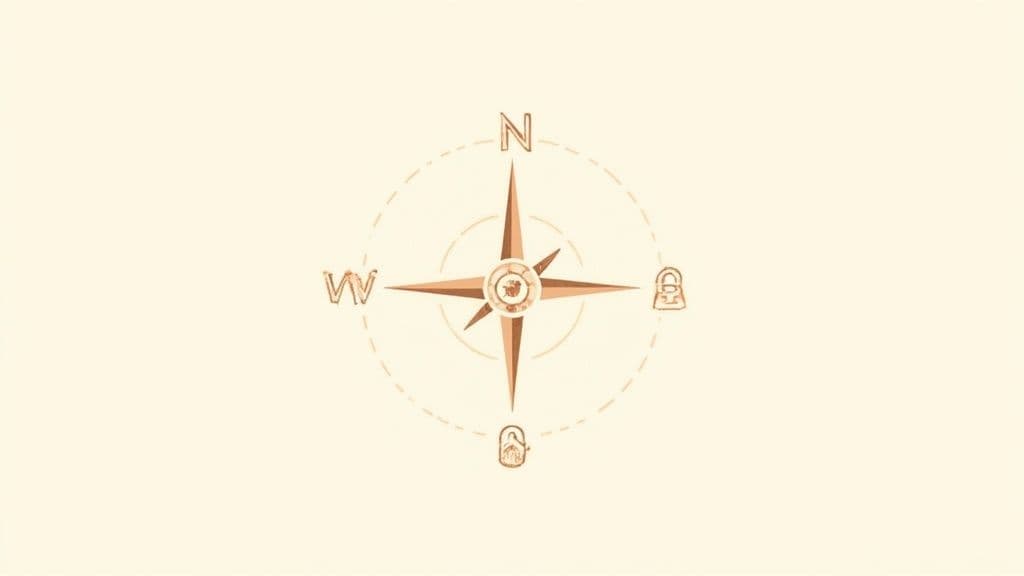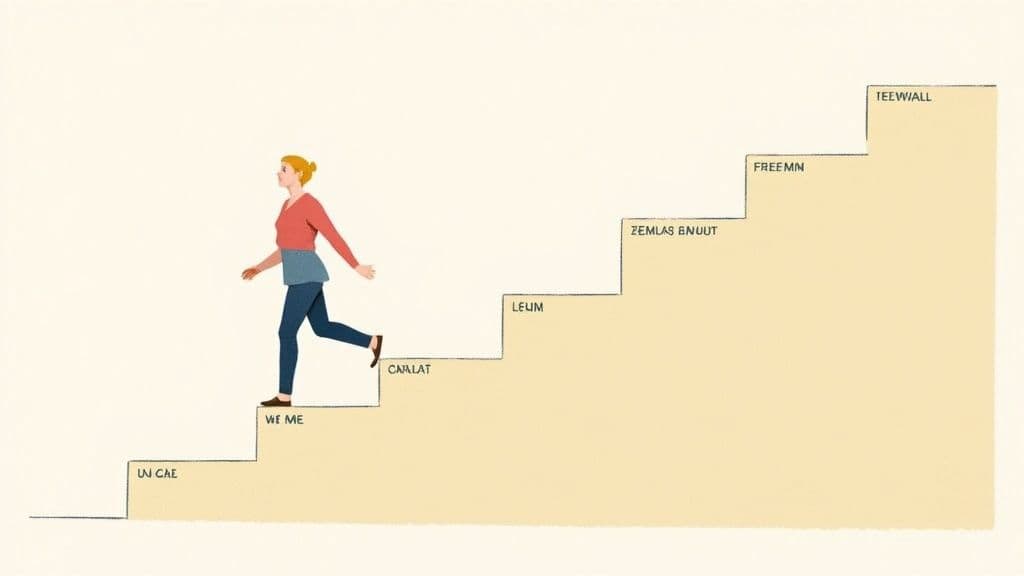what do you want from life? Discover your values, passions, and purpose with practical steps to a clearer, more meaningful path.
November 18, 2025 (2d ago)
what do you want from life: a practical guide to purpose
what do you want from life? Discover your values, passions, and purpose with practical steps to a clearer, more meaningful path.
← Back to blog
What Do You Want from Life? Practical Guide to Purpose
Summary
Discover your values, passions, and purpose with practical steps to create a clearer, more meaningful path.
Introduction
That big, overwhelming question—“What do you want from life?”—can feel paralyzing. Clarity rarely arrives as a single flash of insight. It grows through small, intentional steps: learning your values, tending relationships, finding meaningful contribution, and committing to steady growth. This guide breaks that journey into concrete actions you can use today.
How to Start Answering the Big Question

If you’re feeling stuck, take a breath. You don’t need one big revelation. The real path to clarity is a gentler journey of self-discovery. Below is a simple framework to get you started—no epiphanies required.
The Four Pillars of a Meaningful Life
Use these four lenses to break down the question into manageable parts.
| Pillar | What It Means for You |
|---|---|
| Values | Your non-negotiables—principles that guide decisions when no one’s watching (e.g., honesty, creativity, security). |
| Connections | The people who energize and support you—friends, family, and community. |
| Contribution | How you want to impact others. Small acts of service count as much as big missions. |
| Growth | The skills and experiences you want to pursue to keep evolving. |
This approach shifts the focus from finding one single “purpose” to building a life aligned with what truly matters to you.
Your Core Values Are Your Compass—Not Your “Shoulds”

Before you can decide what you want from life, clarify who you are. The biggest obstacle is often the noise of expectations—the “shoulds” from family, society, and your inner critic. Real clarity comes from excavating your personal values. These aren’t motivational slogans; they’re the beliefs that guide you when you’re being your most authentic self.
Find Your Values in Peak Experiences
Look back at moments when you felt truly alive—peak experiences. For each memory, answer:
- What was I doing?
- Who was with me?
- What feelings came up?
- What made that moment so meaningful?
From those patterns you’ll see recurring themes—those themes are clues to your core values. For more examples and exercises, see this guide on core values and examples.
Separate Values from External Pressure
It’s easy to mistake external expectations for your own values. For example, you might chase a high salary thinking you value “success,” when the deeper value could be security or impact. When your actions align with intrinsic values, you feel energized; when you chase external “shoulds,” you often feel drained.
Tools and frameworks can help with clarity. Dan Millman’s system in The Life You Were Born to Live and the Life Purpose App offer a structured lens to explore inherent predispositions and values.3
Finding Fulfillment in Your Connections

Humans are social by design. When people ask “What do I want from life?” relationships are almost always part of the answer. Strong social ties are a major predictor of life satisfaction. In the happiest countries, people report far higher levels of social support than in less happy nations, and those with strong social bonds are significantly more likely to call themselves very happy.1
Auditing Your Social Circle
A relationship audit helps you see which connections uplift and which drain you. For one week, note how you feel after interactions:
- Who leaves you energized and inspired?
- Who leaves you drained or anxious?
- Which conversations feel natural and authentic?
Understanding your social energy lets you invest time where it matters.
Nurturing Relationships
Invest more time in the people who replenish you. Small, consistent gestures—texts, calls, a shared coffee—strengthen bonds. For relationships that feel draining, set gentle boundaries or change the context of interactions. Practical communication exercises can help; see relationship communication exercises for techniques.
Discovering Your Purpose Beyond a Paycheck
A job can pay the bills; purpose gives you a reason to get up each morning. Purpose isn’t always tied to a career title. It can live in creative outlets, volunteer work, or the everyday ways you care for others. The ikigai framework—what you love, what you’re good at, what the world needs, and what you can be valued for—helps you find where meaning and practical value intersect.
Ikigai: A Practical Framework
Your ikigai sits at the overlap of four areas:
- What you love
- What you’re good at
- What the world needs
- What you can be valued for
Finding ikigai is an ongoing process that reconnects your daily work to deeper values.
Purpose Is a Human Need
A clear sense of purpose strongly correlates with life satisfaction. Research shows that adults with a clear sense of purpose are more likely to report higher life satisfaction and well-being, and that purpose appears across work, family, and community roles.2
If you want structure, tools like Dan Millman’s work and the Life Purpose App can help you explore your natural strengths and challenges as part of this journey.3
Look at Yourself Through a New Lens
If traditional exercises feel stale, try a different framework. Dan Millman’s system maps a life path number from your birth date to reveal core themes, strengths, and challenges—useful language to understand your natural wiring and align your choices with it.3
Your Life Path Blueprint
A life path blueprint reframes “What do I want from life?” into a practical question: “Which path feels aligned with who I already am?” This reduces guesswork and helps you work with your tendencies rather than against them.
Turning Your Insights Into Action

Clarity without action stays theoretical. The most sustainable change comes from small, consistent steps—not overnight overhauls.
Start with Micro-Goals
Micro-goals are tiny actions you can commit to immediately. If “creativity” is a core value, a micro-goal could be 15 minutes of sketching each morning. If you want more connection, send one thoughtful message per day. Tiny wins build momentum.
Create a 30-Day Experiment
Run a low-stakes, 30-day test:
- Choose one core value to focus on.
- Define three micro-goals tied to that value.
- Track progress with a simple checkmark or note.
- Reflect after 30 days: what worked, what didn’t?
This lets you learn from experience instead of getting stuck in theory. For daily guidance, consider tools and frameworks rooted in Millman’s work and the Life Purpose App.3
Common Concerns and Reassurances
“I Have Too Many Interests—How Can I Possibly Choose Just One?”
That’s not a weakness; it’s a strength. Treat your interests as a portfolio. Some passions can be careers, others hobbies or side projects. The aim is a rich life that reflects all parts of you.
“Is It Selfish to Spend Time on What I Want?”
Not at all. When you care for your own needs, you show up fuller for others. You become a better friend, partner, and community member. You can’t pour from an empty cup.
“How Often Should I Revisit These Questions?”
What you want will change as you grow. Check in once or twice a year, or during major transitions. Using frameworks and tools can make those check-ins faster and more insightful.3
Ready to keep the conversation going? The Life Purpose App can help you uncover your life path and find clarity. Download it today.
Quick Q&A — Common Questions Answered
Q: How do I start when the question feels too big? A: Break it into the Four Pillars—values, connections, contribution, growth—and pick one small action to try this week.
Q: How do I know my values aren’t just what others expect of me? A: Look at peak experiences and recurring themes in moments you felt truly alive—those reveal intrinsic values.
Q: What if I’m not satisfied after a 30-day experiment? A: Treat it as data. Adjust the micro-goals, try a new value, or use a framework like ikigai or a life-path tool to reframe your approach.
Discover Your Life Purpose Today!
Unlock your true potential and find your life’s purpose.
